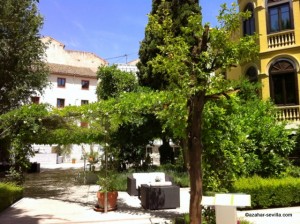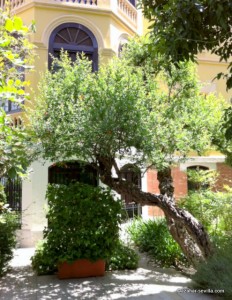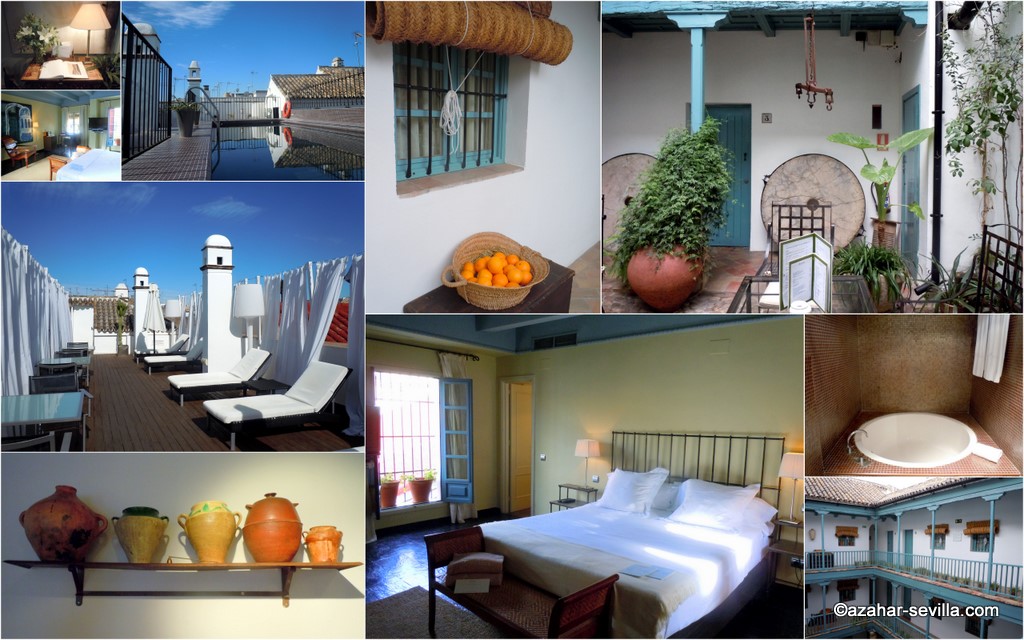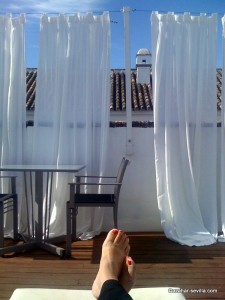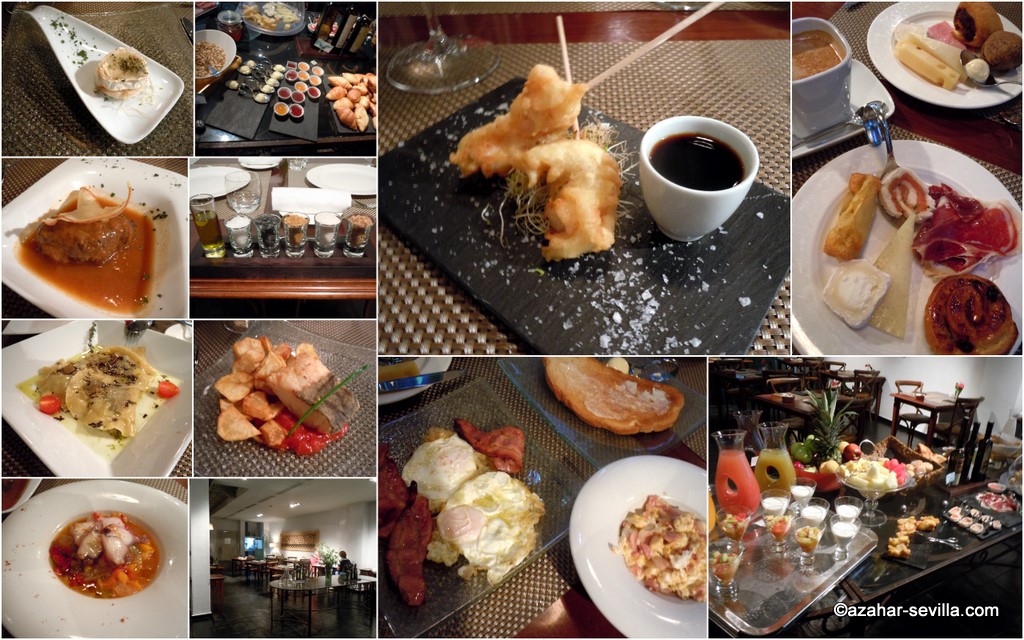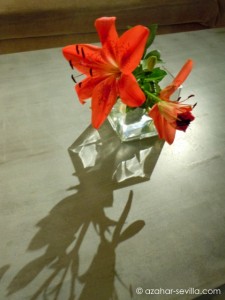 Córdoba has long been famous for the Mezquita, the beautiful mosque-cathedral with its perspective-shifting array of columns and arches, but in recent years this fascinating city, which has the second largest preserved historic centre in Europe, has been increasingly recognised as one of the essential must-see places.
Córdoba has long been famous for the Mezquita, the beautiful mosque-cathedral with its perspective-shifting array of columns and arches, but in recent years this fascinating city, which has the second largest preserved historic centre in Europe, has been increasingly recognised as one of the essential must-see places.
The Hospes Hotel Palacio del Bailío (Palace of the Knight-Commander), Córdoba’s first ever 5-star hotel, combines modern luxury with the charm of a building whose history is intertwined with that of the city. The site was occupied by the Romans (there are Roman ruins in the basement) and the Moors, and after the conquest of the city by the Christian king Ferdinand III in 1236 it was given as a reward to one of his supporters. It was owned for many generations by the family of the Great Captain (El Gran Capitán) Gonzalo Fernández de Córdoba, and the present palace was built between the 16th and 18th centuries. After part of the palace had been donated to the convent of Dolores and the Hospital of San Jacinto, and with the death of the last descendant of the Fernández family, the palace fell into decline until it was purchased by the Castejón family in 1929, who began the work of its restoration. It was declared a historic monument in 1982 and became a hotel in March 2007.
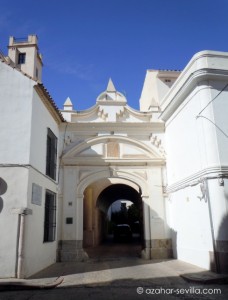 The entrance to the hotel from the street is surprisingly modest, and is watched over by a statuette of San Rafael (the unofficial patron saint of Córdoba), and a small stylised metal dragon. Once inside it’s impossible not to be drawn in by the combination of the grand and the cosy. The basic facilities are what you would expect from a 5-star hotel, but the special charm of this hotel is the way in which these are combined with Hospes’ own emphasis on restfulness and well-being, and expressed through the fabric of a historic building.
The entrance to the hotel from the street is surprisingly modest, and is watched over by a statuette of San Rafael (the unofficial patron saint of Córdoba), and a small stylised metal dragon. Once inside it’s impossible not to be drawn in by the combination of the grand and the cosy. The basic facilities are what you would expect from a 5-star hotel, but the special charm of this hotel is the way in which these are combined with Hospes’ own emphasis on restfulness and well-being, and expressed through the fabric of a historic building.
Last week my friend Peter (aka Seville Concierge) and I were invited to spend the night and also enjoy a flamenco-themed dinner. Our room was a modern standard (dreamer), with a fabulous slate-tiled bathroom, two balconies that overlooked the main patio garden with its swimming pool and fountain, and of course the amazingly comfy beds that Hospes is famous for. There’s also a pillow menu available. I loved falling asleep – and waking up – to the soothing sound of running water from the garden.
In the evening dinner was in the Roman patio, with an excellent singer and guitarist duo (there’s a different entertainment theme every month) and wonderful food by Senzone. The main restaurant is in the next room, and there’s also an attractive tapas bar, which are open to the public as well as guests. The patio also doubles as the breakfast room, where we had a substantial breakfast (well, it would be really, wouldn’t it?) on our second day. The Roman patio is so called because beneath the glass floor you can see the remains of a mosaic and marble columns of the Roman building that was once there (rediscovered by accident in the 1930s when the owners were building a tunnel to bring coal into the house without blackening the floors). It also has restored eighteenth century murals, including a row of upper story windows to match the real ones on the other two sides.
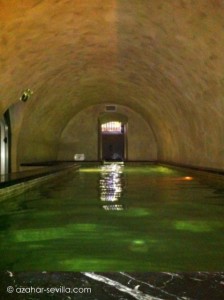 One thing we didn’t get to do was to sample the pleasures of the Bodyna Spa Roman baths and massage (having slept through our alotted time in the late afternoon – darn those comfy beds!) but we were able to have a look around the next morning when sales manager Laura Baena took us on a tour of the hotel. We were duly impressed, especially by the peacefulness of the cool, dimly lit stone baths (there are three of them, set to three different temperatures). I could certainly have spent a blissful hour there just soaking up the silence. We also got a peek at the Roman ruins, which aren’t open to the public and are under special protection, similar to the mosque.
One thing we didn’t get to do was to sample the pleasures of the Bodyna Spa Roman baths and massage (having slept through our alotted time in the late afternoon – darn those comfy beds!) but we were able to have a look around the next morning when sales manager Laura Baena took us on a tour of the hotel. We were duly impressed, especially by the peacefulness of the cool, dimly lit stone baths (there are three of them, set to three different temperatures). I could certainly have spent a blissful hour there just soaking up the silence. We also got a peek at the Roman ruins, which aren’t open to the public and are under special protection, similar to the mosque.
All too soon our 24 hours of luxury were over. I can honestly imagine spending a couple of days at the Palacio Bailío and not even leaving the hotel, so if you do plan on staying here (and I highly recommend it) book yourself an extra night so that you actually get to see the city. I’m still dreaming of going back…
Oh, and did I mention the free WiFi?
[photo gallery below…]
Continue reading “Dreaming in Córdoba”
